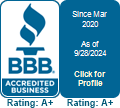
7 Smarter Ways to Pay: Credit Card Alternatives Worth Considering
Credit cards are convenient but are also one of the easiest ways to fall into financial trouble. Between rising interest rates, annual fees, and the temptation to overspend, relying on plastic can create more stress than solutions.
If you are trying to manage your money more mindfully or avoid accumulating new debt, there are better alternatives than credit cards. Here are seven clever options to help you stay on top of your finances and control spending.
1. Debit Cards: Your Money, Your Rules
Unlike credit cards, debit cards draw money directly from your bank account. You are spending what you already have, making it easier to avoid overspending.
Why is it better?
- No interest charges
- Budget-friendly and straightforward
- They are accepted almost everywhere, like credit cards
Tip: Choose debit cards that do not charge overdraft fees to help you steer clear of unexpected costs.
2. Digital Wallets Linked to Checking Accounts
Apps like Apple Pay, Google Pay, PayPal, or Venmo let you make fast, secure purchases using funds from your linked bank account. They combine convenience with control.
Why is it better?
- Real-time transaction tracking
- Enhanced security and privacy
- Works for online and in-store shopping
Tip: Search “best digital wallet apps for budgeting” to compare your top choices.
3. Prepaid Cards: Spend Only What You Load
Prepaid cards function like debit cards, but you load money onto them in advance. They’re helpful for budgeting, travel, or people without bank accounts.
Why is it better?
- No risk of racking up debt
- There will be no credit check
- Great for teens or those just starting to budget
Tip: Watch out for reload or maintenance fees—always read the fine print before picking a prepaid card.
4. Buy Now, Pay Later (BNPL) — With Caution
BNPL services like Klarna, Afterpay, and Affirm let you break up purchases into smaller payments. While convenient, it can also lead to overspending if not used carefully.
Why is it better?
- No interest when paid on time
- Useful for larger purchases
- Approval is typically more accessible than with traditional credit cards or personal loans.
Tip: Always check repayment terms and fees—late payments can still impact your credit.
5. Cash: The Original Budgeting Tool
Paying with physical cash may seem outdated, but it is one of the best ways to curb impulse spending and stick to a budget.
Why is it better?
- No hidden fees or interest
- Reduces impulsive spending
- Pairs well with envelope or bucket budgeting
Tip: Use cash for set categories like groceries or entertainment to better control spending.
6. Secured Credit Cards: Rebuild and Relearn
Are you trying to rebuild your credit or learning to borrow wisely? A secured card might be the right fit—it uses a refundable deposit as your credit limit.
Why is it better?
- Helps improve your credit score
- Keeps spending in check
- It is often easier to get approved for compared to regular credit cards.
Tip: Charge only what you can afford to pay off in full—this helps you dodge interest and form solid financial habits.
7. Peer-to-Peer (P2P) Lending: When You Need to Borrow
Platforms like LendingClub or Prosper connect borrowers with individual lenders, often offering lower interest than traditional credit cards.
Why is it better?
- Potentially lower rates than credit cards
- Clear repayment plans
- A quick online approval process
Tip: Only borrow what you truly need, and make sure the repayment terms fit your budget.
Final Thoughts: Choose Smarter, Spend Better
Breaking up with credit cards does not mean giving up convenience. The right alternative can give you more control, fewer fees, and a better relationship with your money. Start with one or two of these options and see how they fit your lifestyle. Financial freedom starts with small choices, and choosing better payment tools is a big step toward a more secure future.
Need help managing your debt?
Feeling weighed down by credit card debt? You are not alone. Connect with our team to explore customized debt relief plans and take the first step toward financial freedom.


